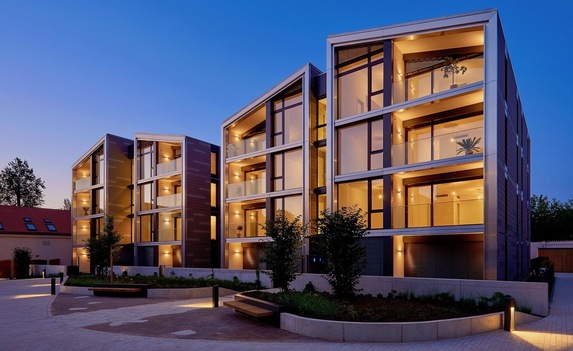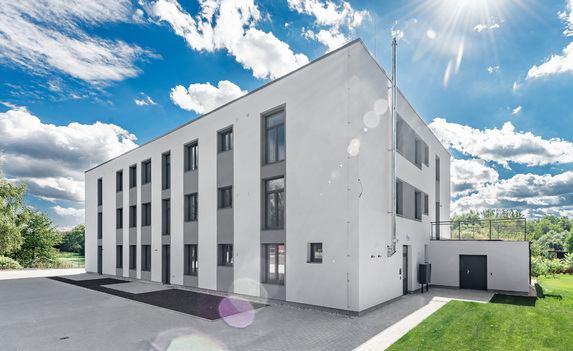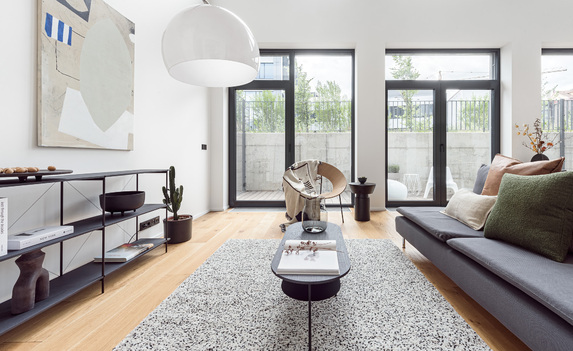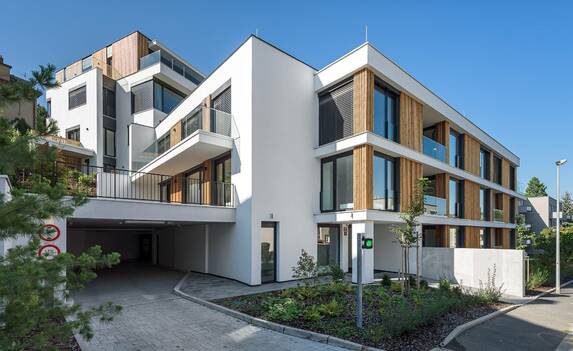The Czech construction industry is experiencing difficult times as a result of the war in Ukraine

The consequences of the covid crisis are still not over, the Czech construction industry is once again experiencing a difficult test. This time, the Russian invasion of Ukraine is to blame for the loss of foreign workers and supplies of materials.
Ukraine has been defending the Russian invasion for more than seven weeks. Among the defenders are tens of thousands of Ukrainians working in various branches of Czech industry, especially construction, which is almost dependent on the Ukrainian workforce. According to Metrostav spokesman Vojtěch Kostih for the CNN Prima NEWS editorial office, around 20,000 Ukrainians are legally employed in the Czech construction industry, and it is difficult to say how many illegally.
The shortage of the workers will affect everyone
At the beginning of the war, according to the Chamber of Commerce from the beginning of March, around 30,000 Ukrainians left Czech companies, which is approximately 15% of their total number in the country. The information is based on a survey of 350 respondents from Czech employers. However, as the war continues, this number will be much higher today.
Although many smaller domestic construction companies do not employ Ukrainian workers, due to the complexity of supply chains, their departure will have an impact on the sector as a whole. According to the iDNES portal, due to a critical shortage of workers, a number of manufacturing companies, such as panel companies and the production of steel and locksmith structures, must also reduce production. According to the director of Zlínstav, Jiří Stack, construction companies are already facing a shortage of bricks.
The lack of materials caused an extreme increase in prices
However, the failure of Czech employers is not the only problem that construction companies face. Due to the invasion, there is a shortage of building materials imported from Ukraine and Russia. These are mainly iron ore, nickel or aluminum, from which metallurgical materials are produced, but also already processed products, such as stone wool, which is used as thermal insulation. This logically causes a record increase in their prices. For example, the price of nickel rose by a record 90 years year on year and the price of cotton wool even by 100 percent.
Add to this the record rise in fuel and gas prices, and the consequences can be far-reaching. Due to the volume of building materials, transport often accounts for over 25 percent of its price and the amount of building materials is produced from oil or by burning in gas furnaces. In addition, large foreign construction companies operating in our country cover the shortage in Western European countries by limiting production in Central and Eastern Europe. It can easily happen that a number of domestic construction companies cannot withstand the current situation.
The combination of all the above factors leads to an unprecedented rise in prices of building materials also produced in Europe. According to the Czech Chamber of Authorized Engineers and Technicians (ČKAIT), their sharp increase is beyond inflation and the average growth of consumer goods, according to Echo24. The chamber refers to data from RTS, according to which the price of bricks increased by 30 percent year-on-year, OSB slabs by 70 percent and concrete reinforcement by as much as 80 percent.
However, the rise in commodity prices reflected in the rise in labor prices will be felt most by end users, such as households, cities and municipalities. According to ČKAIT chairman Robert Špalek, there has already been a year-on-year increase in prices for the occupied space by 13 to 15 percent. In the case of public procurement, construction prices may slightly exceed the winning price, which due to the impossibility of their regulation in contracts with suppliers may lead to the postponement or even complete cessation of construction in progress.
The rental market is thriving
Although the war greatly complicated the construction industry, the real estate market, specifically rents, has improved significantly. Although some of the 270,000 refugees who arrived in the Czech Republic subsequently continued to other Western countries, most of them remain temporarily and, after the initial shock, began to look for their own housing.
According to the Seznam Zprávy news, the demand for rental housing in large cities sometimes doubles, and demand in Russian and Ukrainian has also risen sharply. So far, however, the Ukrainian refugees are more short-term leases for a few months.
In terms of population, the busiest region is the South Moravian Region, in which, according to data from the Ministry of the Interior from mid-March, over ten thousand people have found a temporary home. However, most refugees in the Czech Republic still remain with their acquaintances or in the hands of volunteers and state or church institutions.
Photo: Pixabay
- author
- Filip Kubus
- date
- 11. 04. 2022

Contact us +420 731 544 904
World first class services for real estate sales and marketing. We rely on creativity, innovation, courage and optimism. Art of Business. We change the established. We push the boundaries.
CONTACTS








































New properties sent to your email
Subscribe.









